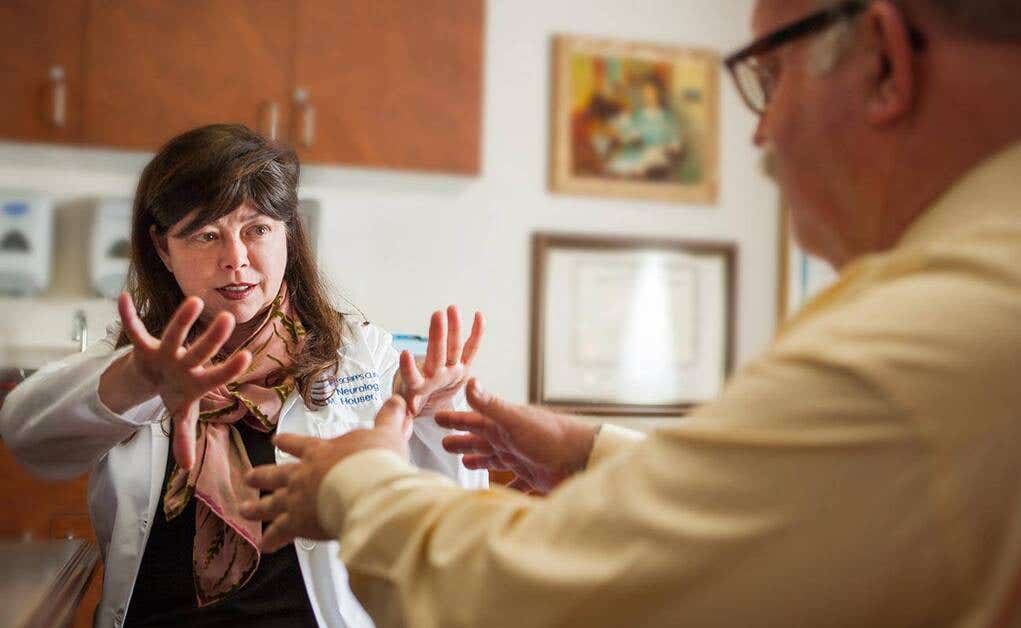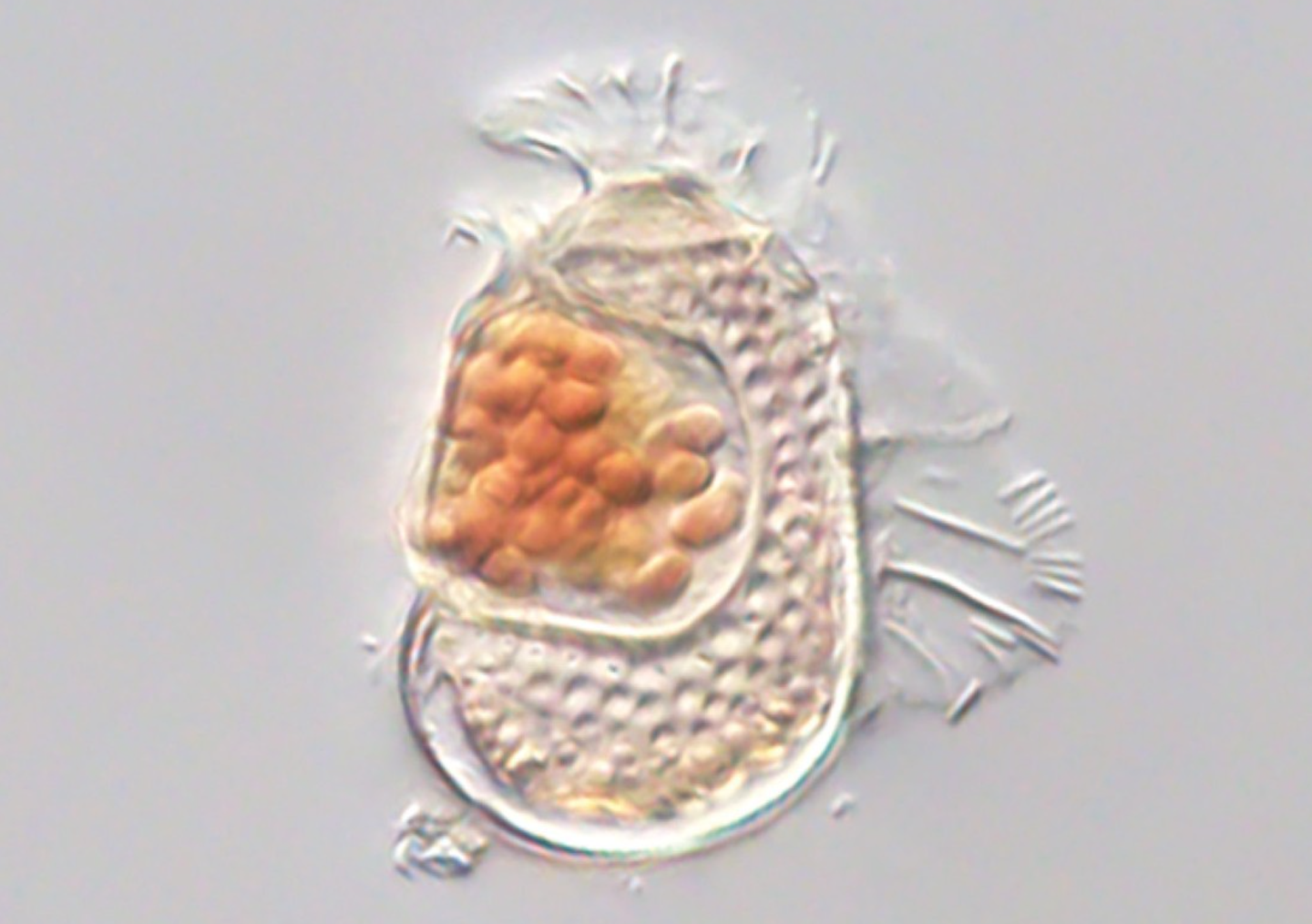Gamechanging discovery: Researchers find a cause of Parkinson’s disease
Known to be a chronic ailment that disrupts the central nervous system, Parkinson’s affects over 10 million people globally.

[Oct. 4, 2023: Staff Writer, The Brighter Side of News]
Known to be a chronic ailment that disrupts the central nervous system, Parkinson's affects over 10 million people globally. (CREDIT: Creative Commons)
In an era of remarkable scientific breakthroughs, the mysteries of Parkinson's disease have remained elusive. Known to be a chronic ailment that disrupts the central nervous system, Parkinson's affects over 10 million people globally, rendering them with difficulty in walking, tremors, cognitive issues, and in advanced stages, dementia.
Despite the world's knowledge of its symptoms and consequences, a comprehensive understanding of its genesis has been missing. However, a recent revelation from researchers at the University of Copenhagen, led by Professor Shohreh Issazadeh-Navikas, might be the key to unlocking the disease's secrets.
Our knowledge of Parkinson's disease, till now, had been primarily focused on the genetic factors associated with familial cases. However, the causative factors for the majority of patients remained in the dark. But why is it that the roots of a disease so widespread remained hidden for so long? It is a combination of the complexity of our brain, the multifaceted nature of the disease, and the limited treatment options that played a part.
Aggregation of alpha-synuclein in a nerve cell. (CREDIT: Timo Myöhänen research group)
The Breakthrough: Mitochondria and Parkinson's Disease
Professor Issazadeh-Navikas and her team embarked on an ambitious quest to delve deeper into the brain's mechanisms, especially those suffering from Parkinson's. The results were nothing short of groundbreaking.
“For the first time, we can show that mitochondria, the vital energy producers within brain cells, particularly neurons, undergo damage, leading to disruptions in mitochondrial DNA. This initiates and spreads the disease like a wildfire through the brain,” articulated Issazadeh-Navikas.
Primers used in the study. (CREDIT: Molecular Psychiatry)
In simpler terms, the damage to the mitochondria, which are essential components of brain cells, leads to the release of its genetic material. When this damaged genetic material, the mitochondrial DNA, gets misplaced within the cell, it becomes a toxin. The cell, in its effort to survive, expels this toxic DNA.
But here’s the catch: our brain cells are interconnected, much like a dense forest. Issazadeh-Navikas adds, “Given the interconnected nature of brain cells, these toxic DNA fragments spread to neighboring and distant cells, similar to an uncontrolled forest fire sparked by a casual bonfire.”
PCR detection of Desulfovibrio bacteria in the feces of PD patients and healthy individuals. (CREDIT: Molecular Psychiatry)
From Understanding to Early Detection: The Potential of Biomarkers
A significant leap in medical science is not just about understanding the disease but also developing methodologies for early detection, treatment, and management. Professor Issazadeh-Navikas believes that their study has sown the seeds for such advancements.
With great enthusiasm, she shared her vision: “Detecting the damaged mitochondrial DNA could serve as an early biomarker for disease development.”
Head section of C. elegans worms fed with E. coli controls and Desulfovibrio bacteria from patients with Parkinson’s disease and healthy individuals. Worms were fed with (A) E. coli LSR11 (negative control), (B) E. coli MC4100 (positive control), (C) D. desulfuricans strain from PD patient and (D) D. desulfuricans strain from healthy individual. (CREDIT: Molecular Psychiatry)
Biomarkers have been a cornerstone of modern medical diagnostics. From indicators like blood pressure and body mass index to more specialized markers such as specific gene mutations in cancer or blood sugar levels for diabetes, they offer a window into the state of our health. A reliable biomarker for Parkinson’s can revolutionize treatment strategies.
And the dream doesn’t stop here. Issazadeh-Navikas adds, “It could be possible that the damage of the mitochondrial DNA in the brain cells leaks from the brain into the blood. That would make it possible to take a small sample of a patient’s blood as a way of diagnosing early on or to establish the favorable response to future treatments.”
Number of alpha-syn aggregates in the head region of C. elegans at day 4 adult stage fed with different bacteria, demonstrated individually (A) or as groups (B). (CREDIT: Molecular Psychiatry)
Imagine a world where a simple blood test could predict or diagnose Parkinson's disease. The implications are staggering. Not only could this lead to early interventions and better management, but it also opens doors to potential treatments that specifically target this mitochondrial dysfunction.
What's Next? A Future of Hope and Resilience
The team from the University of Copenhagen is far from done. Their upcoming ventures include a detailed analysis of how this mitochondrial DNA damage can act as predictive markers for the various stages of Parkinson's and its progression.
Related Stories
“We are dedicated to exploring potential therapeutic strategies aimed at restoring normal mitochondrial function to rectify the mitochondrial dysfunctions implicated in the disease,” shared a passionate Professor Issazadeh-Navikas.
For a more detailed exploration of their findings, readers can access the full research titled “Mitochondrial DNA damage triggers spread of Parkinson's disease-like pathology” published in Molecular Psychiatry.
As the world steps into an era where diseases are understood not just at the symptomatic level but at their very core, this groundbreaking study from Copenhagen brings hope. A hope for millions suffering from Parkinson's, for their families, and for a future where the disease can be managed better, if not entirely eradicated.
Note: Materials provided above by The Brighter Side of News. Content may be edited for style and length.
Like these kind of feel good stories? Get the Brighter Side of News' newsletter.
Joseph Shavit
Head Science News Writer | Communicating Innovation & Discovery
Based in Los Angeles, Joseph Shavit is an accomplished science journalist, head science news writer and co-founder at The Brighter Side of News, where he translates cutting-edge discoveries into compelling stories for a broad audience. With a strong background spanning science, business, product management, media leadership, and entrepreneurship, Joseph brings a unique perspective to science communication. His expertise allows him to uncover the intersection of technological advancements and market potential, shedding light on how groundbreaking research evolves into transformative products and industries.



